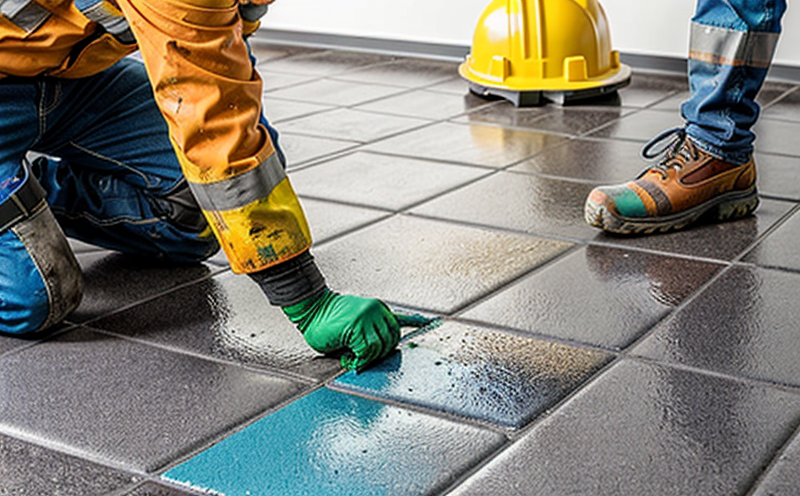Ensuring that bonding agents used in construction materials such as tiles, paint, or flooring are durable
The Importance of Durable Bonding Agents in Construction Materials Why Ensuring Their Quality Matters
When it comes to building and construction projects, the quality of materials used can make all the difference between a successful outcome and costly repairs down the line. Among these materials, bonding agents play a crucial role in ensuring that various components such as tiles, paint, or flooring adhere properly and last long. However, not all bonding agents are created equal. Ensuring that they meet specific standards of durability is vital for businesses engaged in construction to avoid costly failures and ensure customer satisfaction.
What are Bonding Agents?
Bonding agents are specialized chemicals used in the production of various construction materials to facilitate adhesion between different surfaces. These substances can be applied as a primer, an adhesive, or a sealant, depending on their intended use. The performance of these agents directly impacts the lifespan and integrity of finished products.
The Importance of Durability
Durable bonding agents are essential for several reasons
Cost Savings While initially more expensive, high-quality bonding agents can save businesses money in the long run by reducing the need for costly repairs or replacements.
Increased Safety Durable adhesives and sealants prevent water seepage, cracks, and other issues that could compromise structural integrity and pose safety risks to building occupants.
Extended Lifespan Bonding agents with superior durability help extend the lifespan of construction materials, reducing maintenance needs and extending their useful life.
Enhanced Aesthetics High-quality bonding agents ensure a smooth finish, preventing unevenness or discoloration that can detract from the overall appearance of a building.
How Can Eurolab Help?
Our company, Eurolab, offers a comprehensive laboratory service to ensure that bonding agents meet high standards of durability. We understand the critical role these substances play in construction and are committed to providing accurate, reliable testing services that help businesses make informed decisions about their materials. Our team of experts has extensive knowledge and experience with various types of bonding agents, enabling us to develop customized testing protocols tailored to specific client needs.
Benefits of Using Eurolabs Laboratory Service
When you partner with Eurolab for your bonding agent quality control needs, you can expect
Comprehensive Testing Our laboratory offers a wide range of tests designed to evaluate the durability and performance of various bonding agents. These include but are not limited to
Tensile strength and elongation at break
Adhesion properties (shear, lap shear, or peel)
Abrasion resistance
Water absorption and resistance to water immersion testing
Accurate Results Our state-of-the-art equipment ensures precise measurements and accurate results. We adhere strictly to industry-recognized standards and methodologies.
Customized Solutions Each client receives a tailored approach that addresses their specific concerns or project requirements.
QA Frequently Asked Questions
Q What types of bonding agents do you test?
A Our laboratory services cover a broad spectrum of bonding agents, including
Epoxy and polyurethane-based adhesives
Acrylic and silicone sealants
Cementitious grouts and mortars
Q How long does testing typically take?
A The duration of testing depends on the specific test protocol. Some tests can be completed within a few days, while others may require several weeks.
Q What is the purpose of water absorption testing?
A Water absorption testing evaluates how well bonding agents resist water infiltration and absorption. This information helps assess their performance in various environmental conditions.
Q Do you offer any certifications or compliance reports?
A Yes, we can provide certification and compliance documentation for clients who require it for regulatory purposes or to meet specific industry standards.
Conclusion
Ensuring that bonding agents used in construction materials such as tiles, paint, or flooring are durable is crucial for businesses to avoid costly failures and ensure customer satisfaction. Our laboratory service at Eurolab provides a comprehensive solution for evaluating the quality of these substances. With our extensive knowledge, state-of-the-art equipment, and customized testing protocols, we can help clients make informed decisions about their materials.
-
Testing the ability of materials to adhere to surfaces without detaching or peeling
-
Evaluating the bond strength of adhesives used in construction materials and coatings
-
Testing whether adhesives maintain their integrity under stress, temperature changes, or environmental conditions
-
Simulating real-world conditions to test the durability of adhesive bonds over time
-
Testing for resistance to forces like shear, tension, and compression that could break the adhesive bond
-
Verifying that adhesive materials can withstand moisture, heat, and other environmental conditions
-
Testing the adhesion of coatings to substrates such as concrete, wood, or metal to ensure durability
-
Simulating heavy load conditions to test how adhesives perform under pressure or weight
-
Ensuring that adhesives used in outdoor and exposed construction applications remain stable
-
Verifying the adhesion of materials used for insulation, membranes, and coatings to various surfaces
-
Testing the peel strength of adhesives used in construction to ensure that bonds do not fail prematurely
-
Simulating the impact of thermal cycling on the adhesion of building materials over time
-
Testing for resistance to chemical exposure that could weaken or break adhesive bonds
-
Ensuring that adhesives maintain their performance under harsh conditions, such as high humidity or freezing temperatures
-
Verifying that adhesives used in joints and seams do not weaken or detach during building settlement or movement
-
Testing the adhesion of materials in construction panels to ensure stability over time
-
Ensuring that adhesives provide a consistent and strong bond without creating voids or bubbles
-
Simulating mechanical stress and vibration to evaluate how adhesives perform in dynamic environments
-
Verifying that adhesives do not cause material degradation or compromise structural integrity over time
-
Ensuring that adhesives used for floor and wall coverings provide secure bonding without excessive wear
-
Testing for any potential failure points in adhesive joints that could cause materials to separate over time
-
Ensuring that adhesives maintain their performance even after long exposure to weather or UV rays




